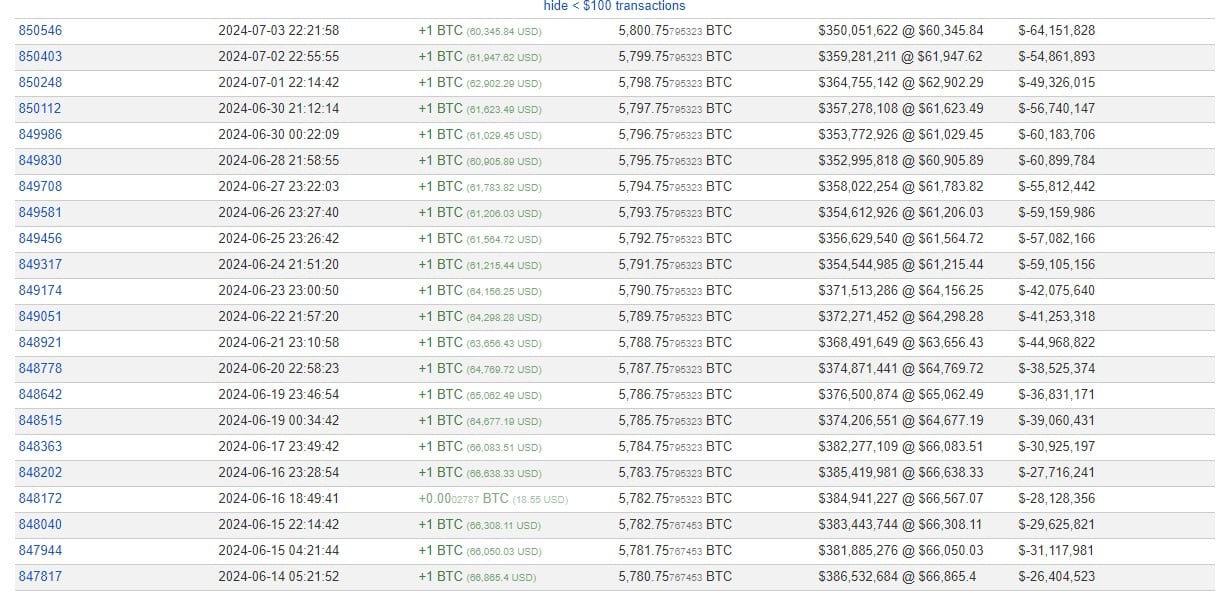
El Salvador continues daily Bitcoin acquisition amid market downturn
Key Takeaways
- El Salvador continues its daily Bitcoin purchases, reinforcing its commitment to the flagship crypto.
- The country is considering developing a private investment bank to facilitate Bitcoin and US dollar transactions.
Share this article
Bitcoin’s price has tumbled over the past few days amid increased selling pressure from Mt. Gox repayments and a bleak economic outlook. Despite that, El Salvador still buys one Bitcoin (BTC) every day.
According to data from BitInfoCharts, a cold wallet controlled by the El Salvador government has accumulated 1 BTC since mid-March, when Salvadoran President Nayib Bukele transferred the country’s BTC holdings to the cold wallet and published the address.

At the time of transfer, El Salvador held around 5,600 BTC, worth over $400 million. Bukele called the wallet El Salvador’s “first Bitcoin piggy bank.”

The revelation in March also marked the first time the President publicly disclosed El Salvador’s Bitcoin wallet address. Previously, he only updated information about new Bitcoin purchases on social channels.
El Salvador’s constant Bitcoin acquisitions are part of Bukele’s daily purchase strategy. The President announced in 2022 that the country would start buying one Bitcoin per day starting on November 18, 2022.
The activation of the strategy followed a landmark move in September 2021, when El Salvador became the first country to adopt Bitcoin as its legal tender.
Previously, Bukele said the country does not simply purchase BTC but accumulates it through passport sales, currency conversions, mining operations, and other government services.
According to Reuters, as of May 15, 2024, El Salvador mined 473.5 Bitcoin (BTC) using the geothermal power of the Tecapa volcano.
El Salvador has recently revealed its plans to advance Bitcoin integration into its banking system. The government reportedly submitted a reform proposal to create a private investment bank that allows for Bitcoin and the US dollar operations.
Share this article
Go to Source
Author: Vivian Nguyen






